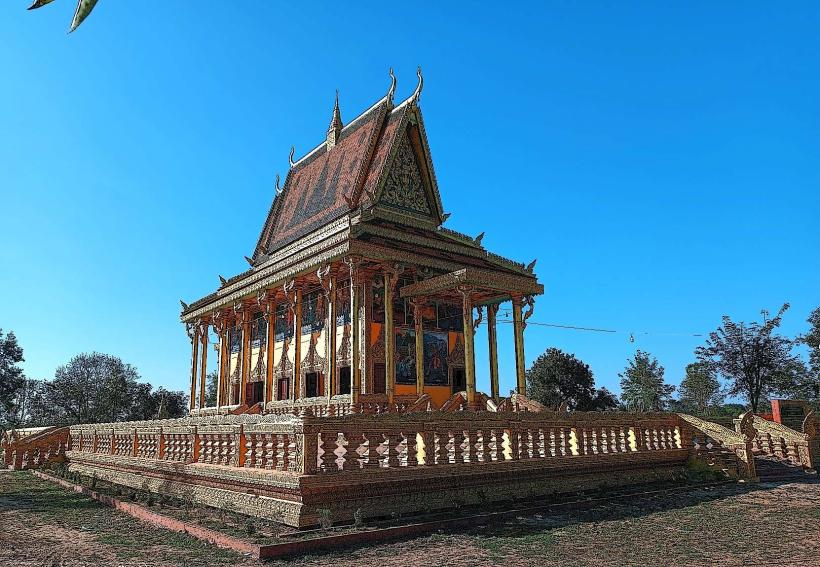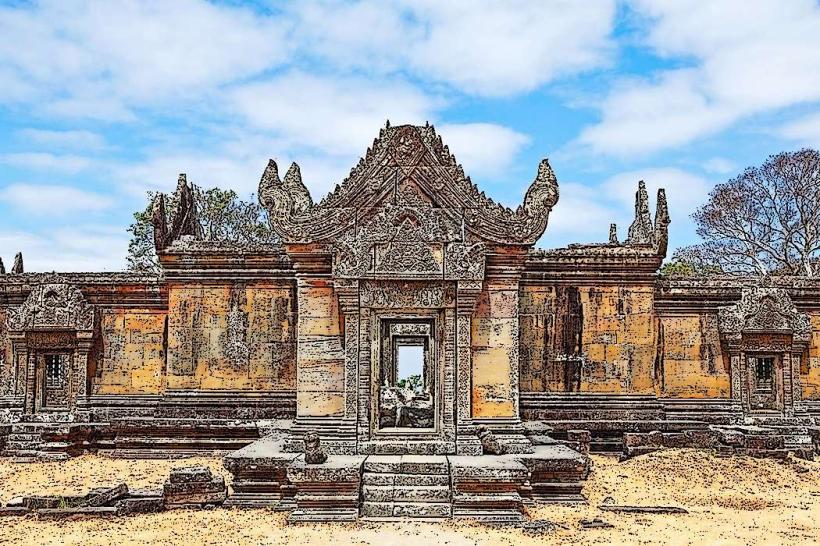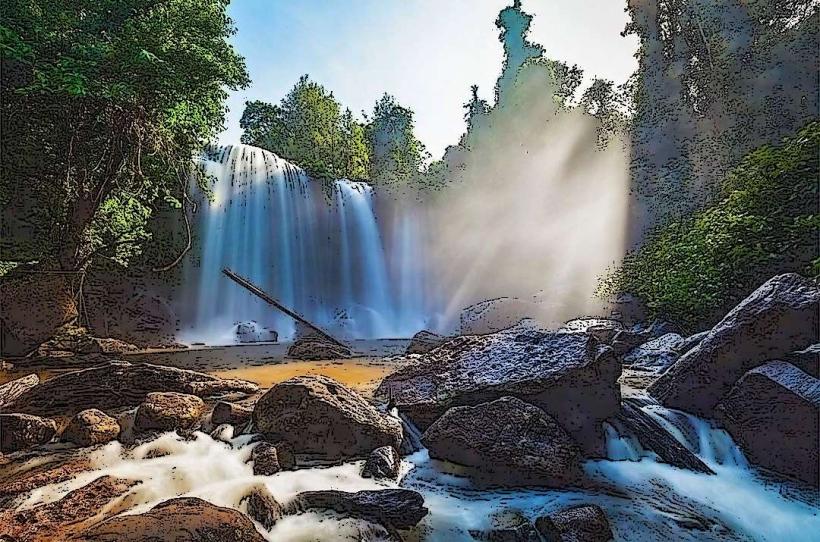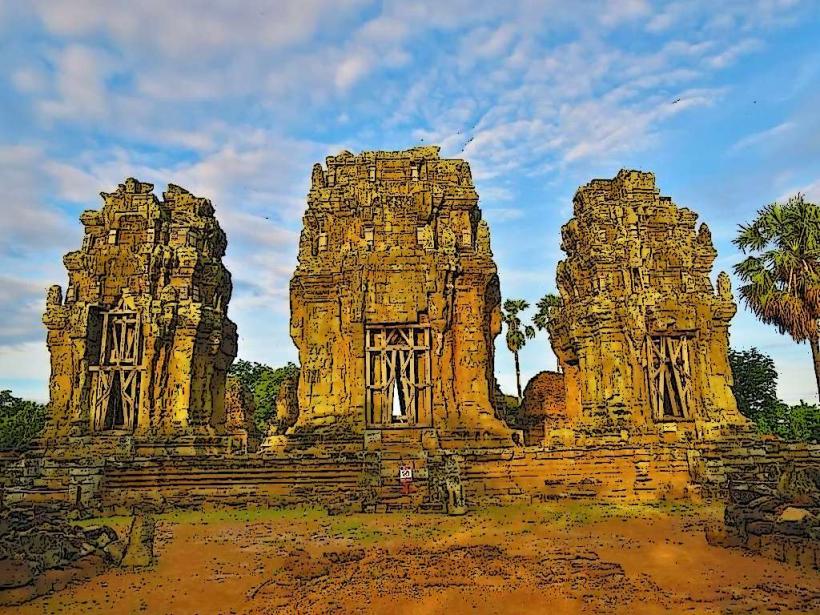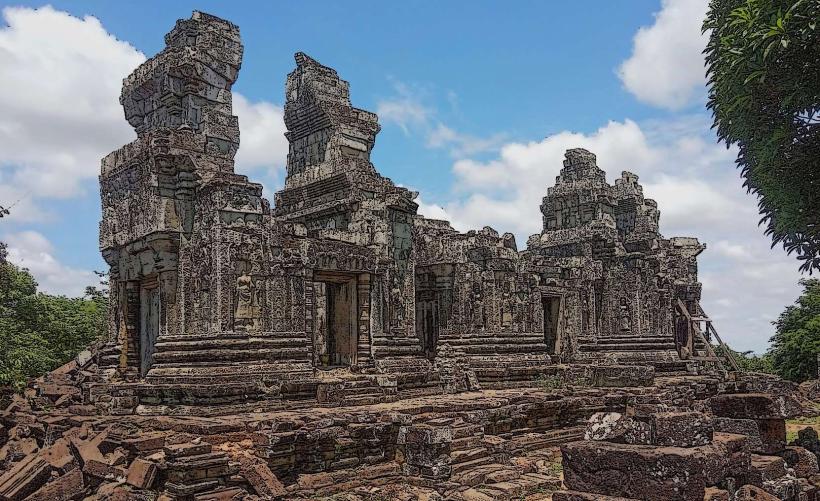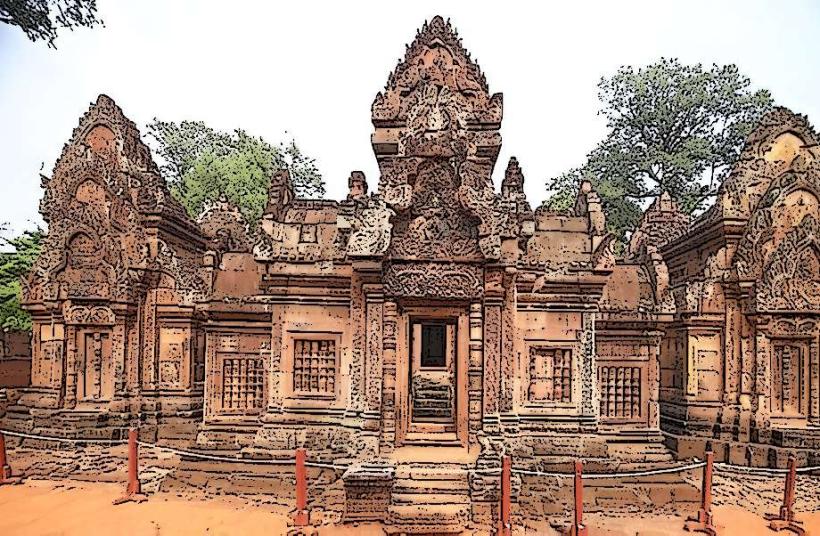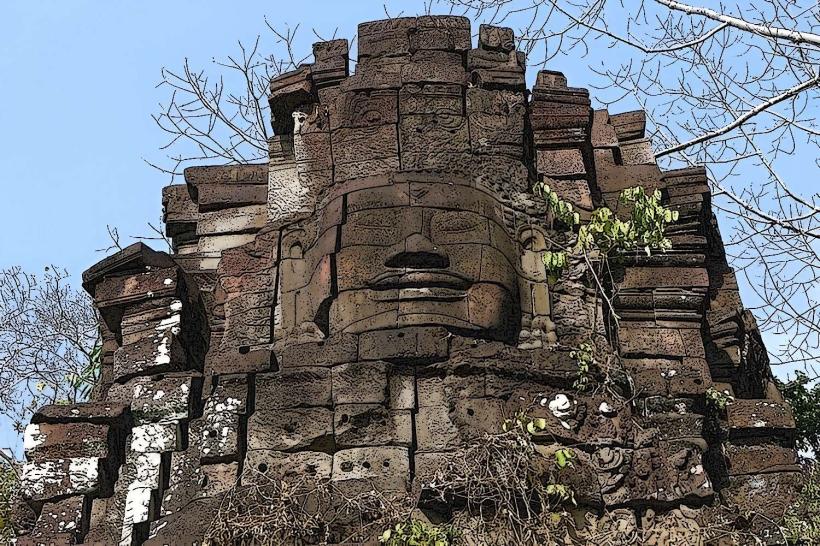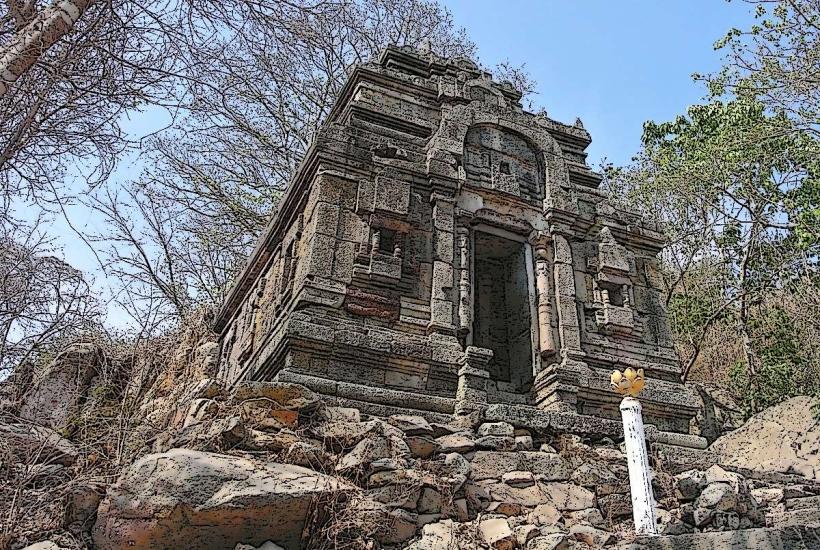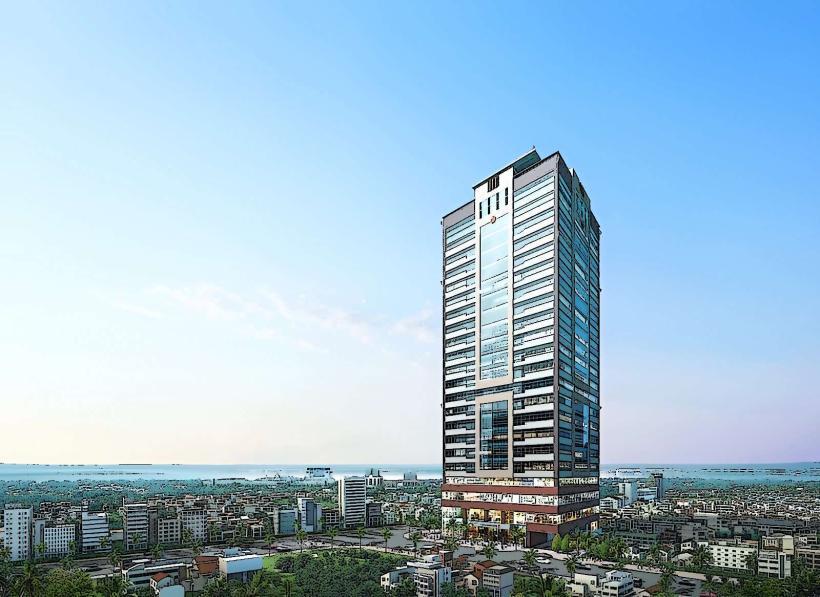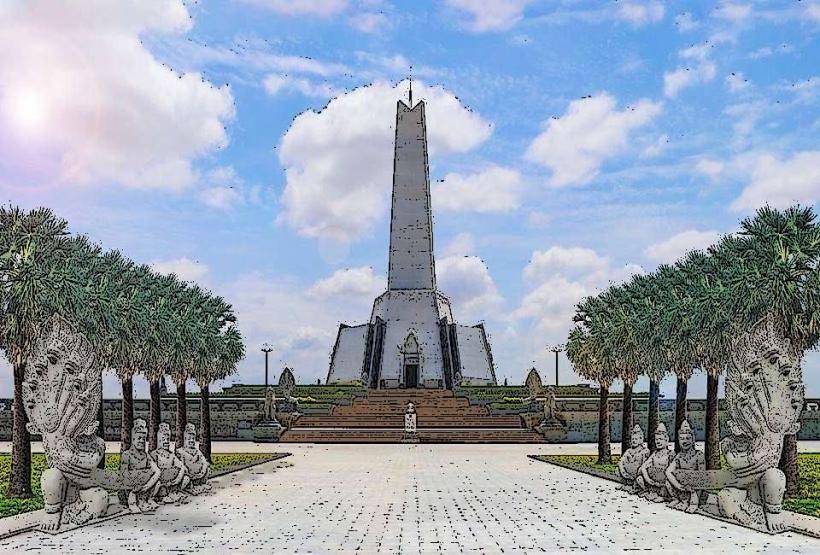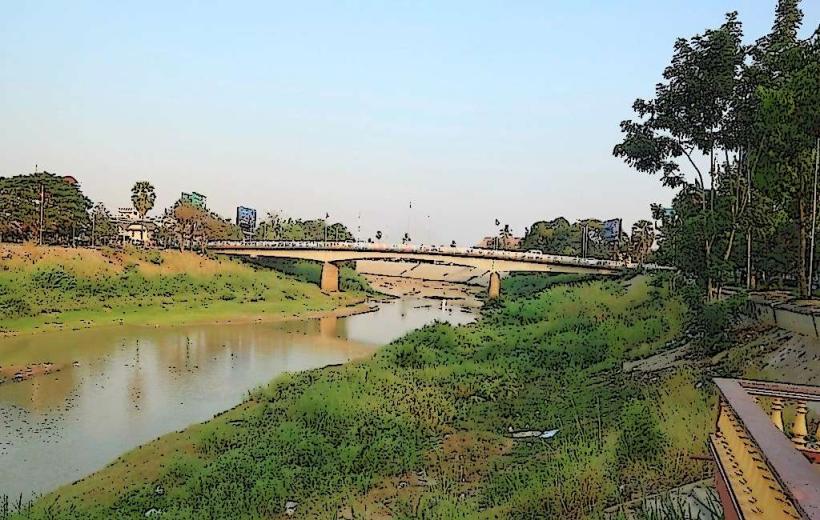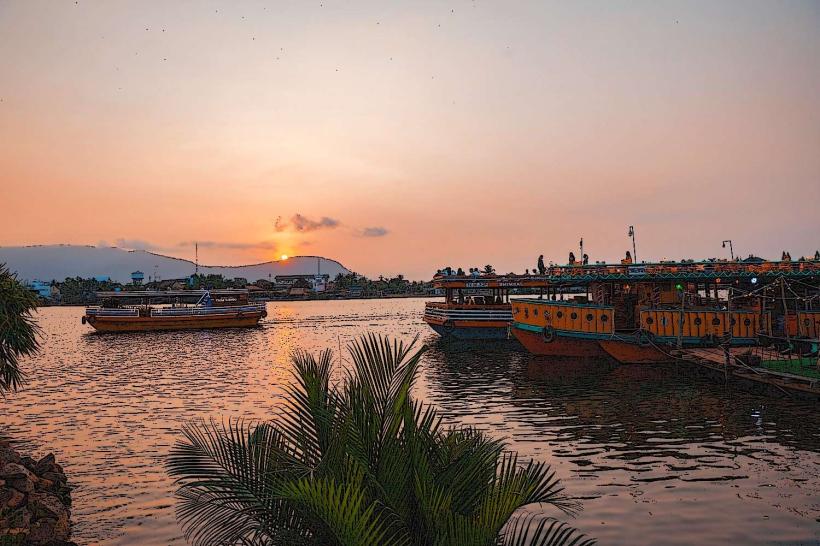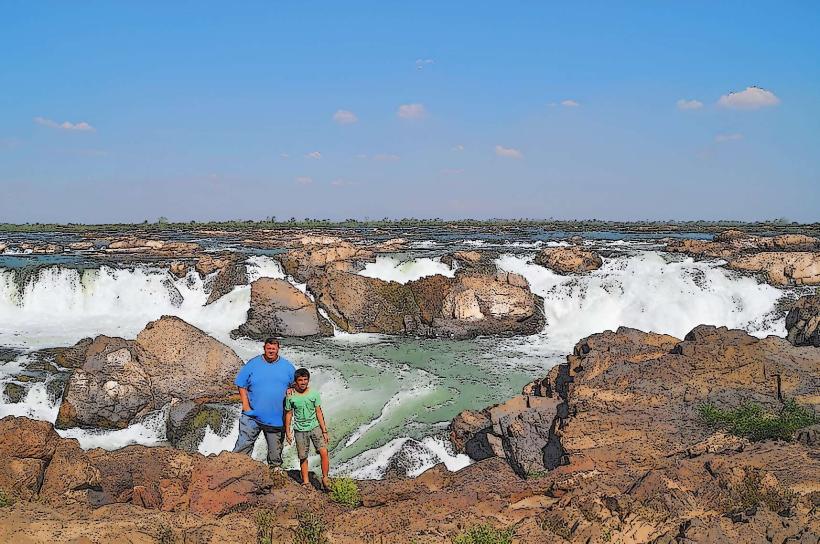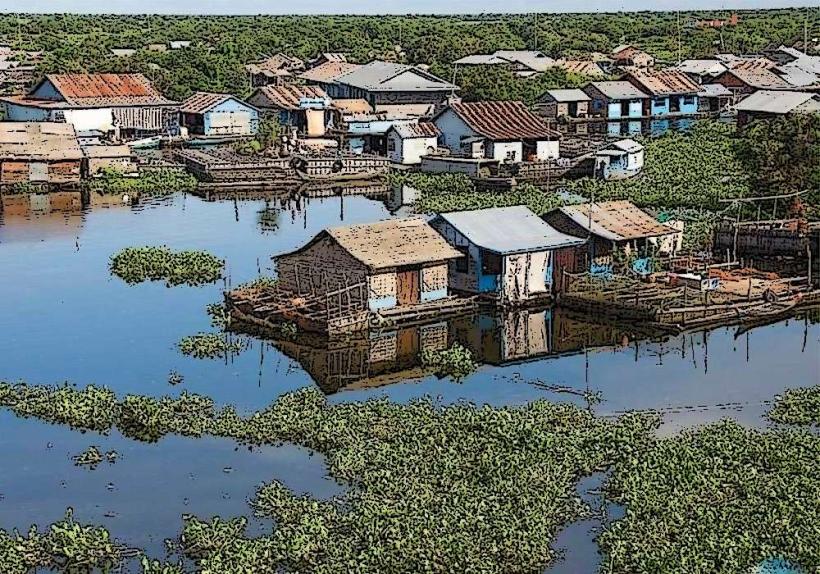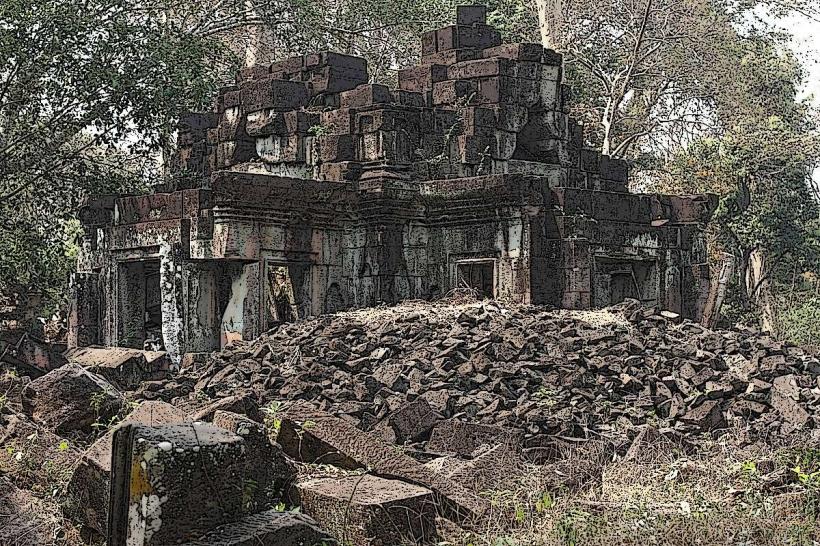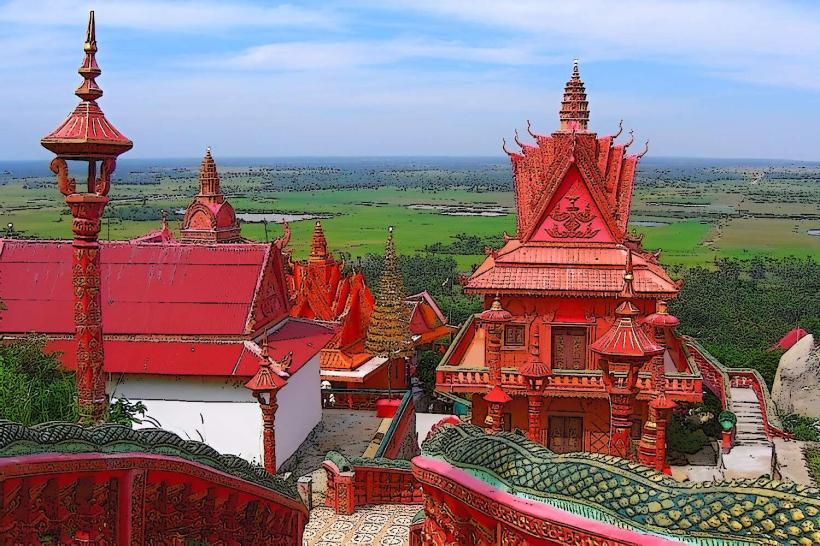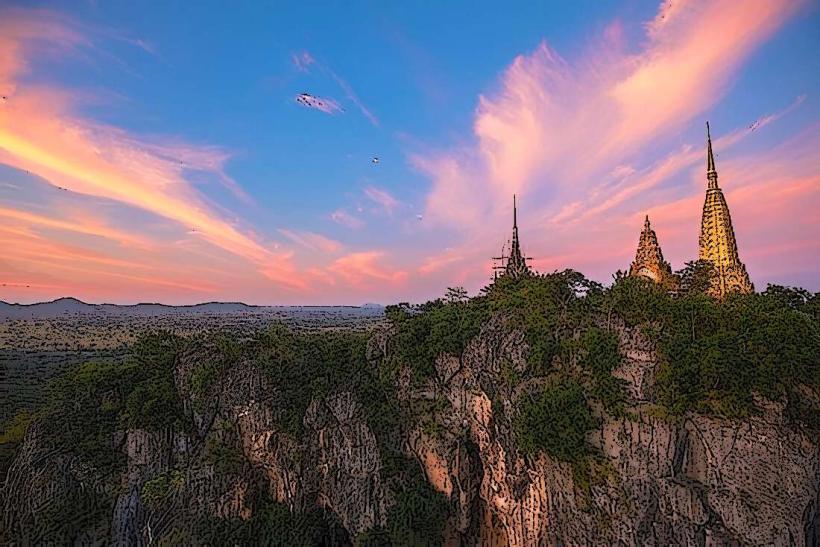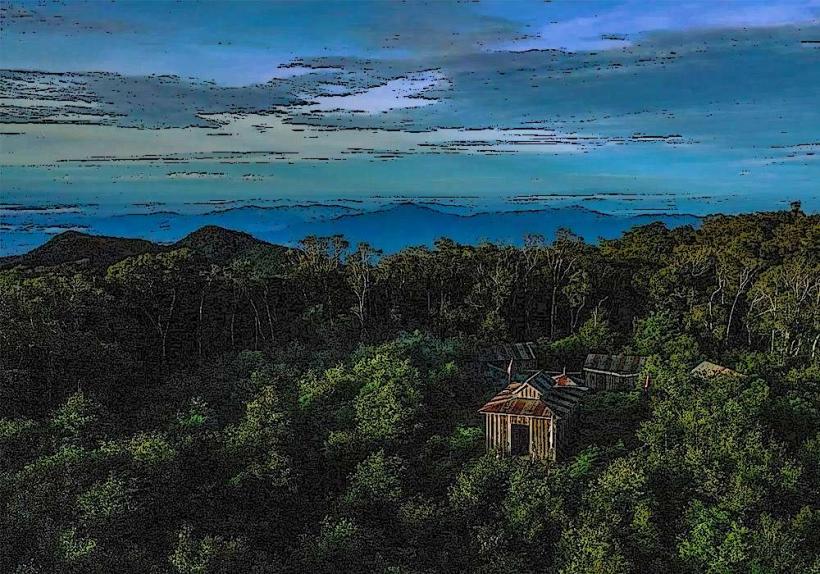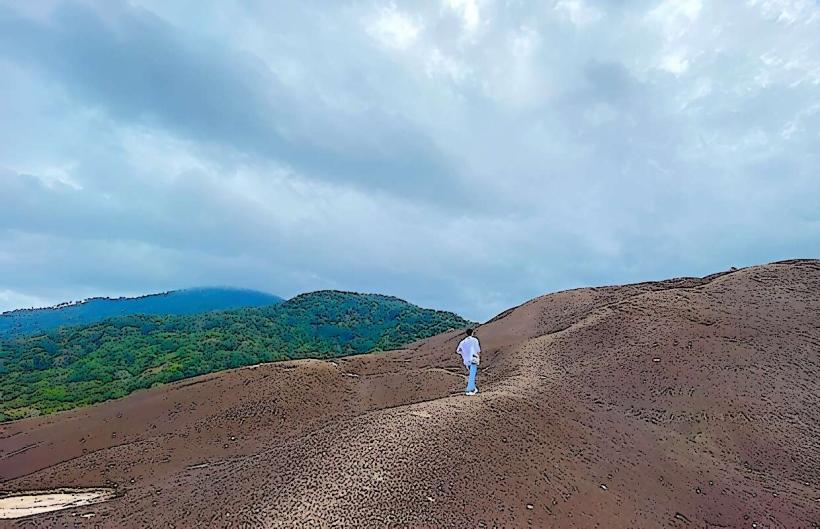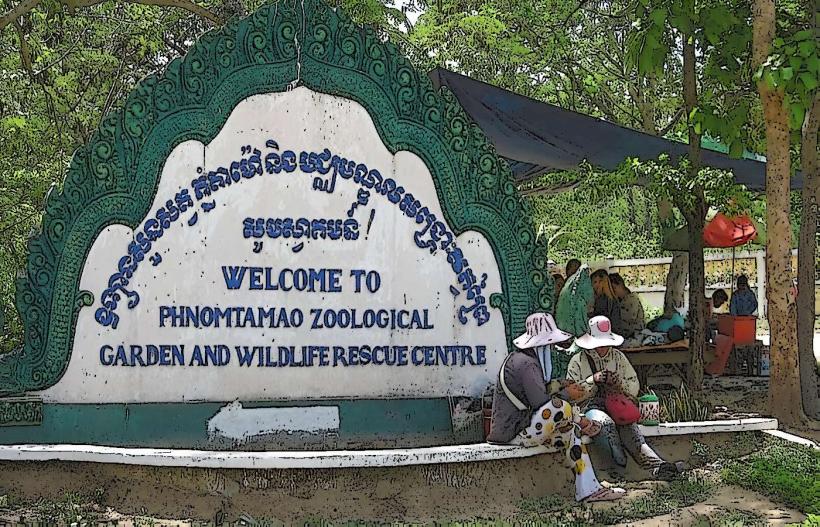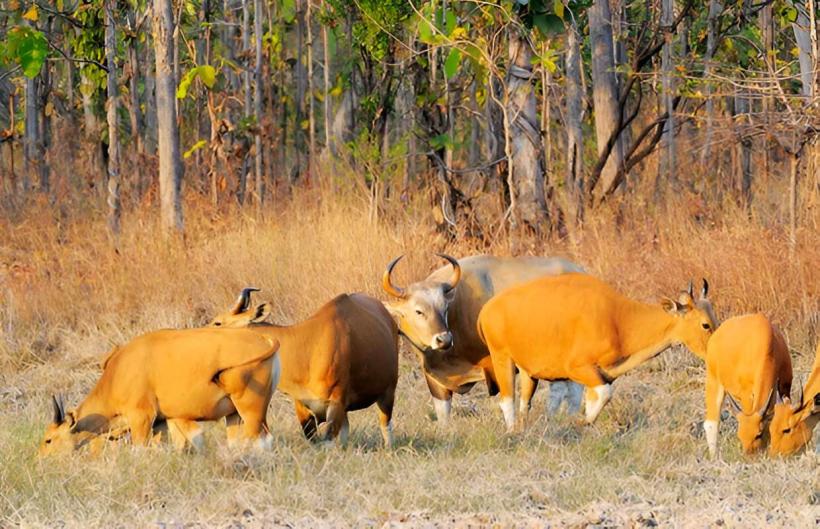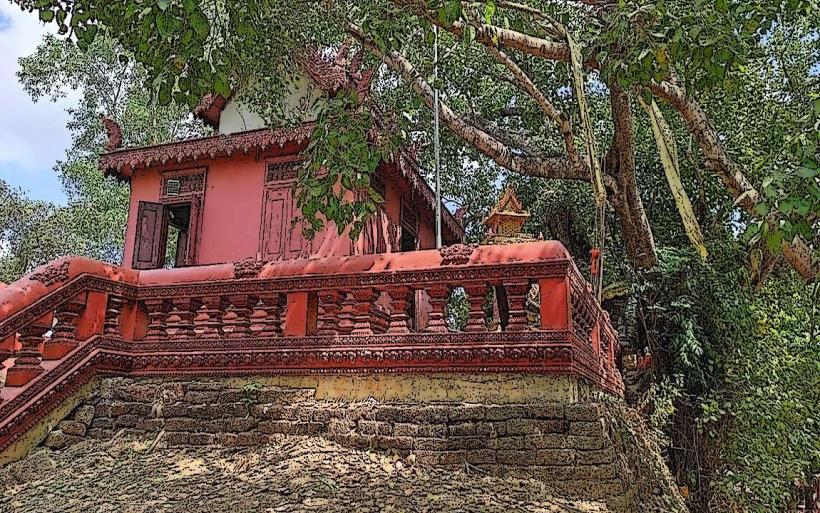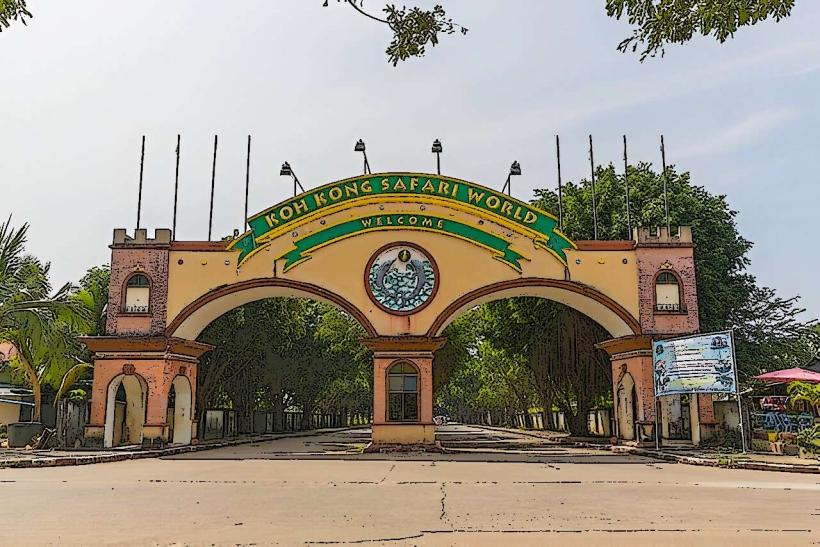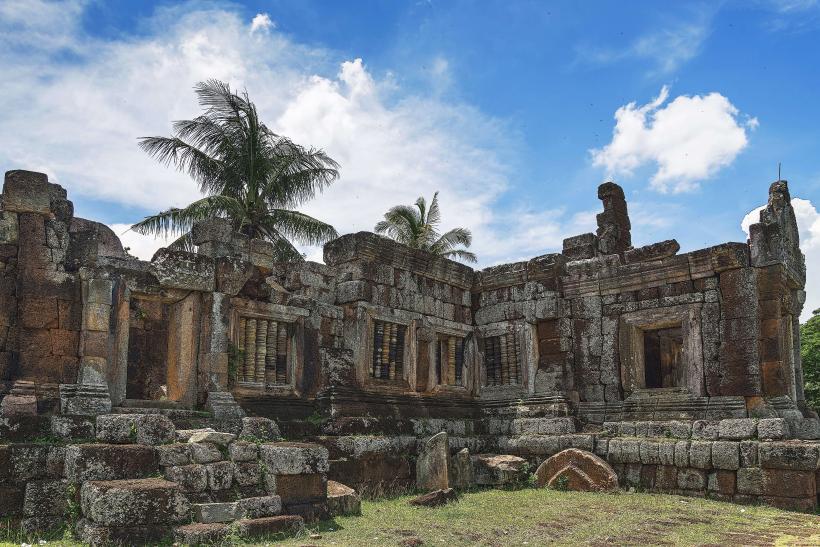Information
Landmark: Krang Ponley WaterfallCity: Cambodia Province
Country: Cambodia
Continent: Asia
Krang Ponley Waterfall, Cambodia Province, Cambodia, Asia
Anlong Veng Historical Sites – The Last Stronghold of the Khmer Rouge
Anlong Veng, located in Oddar Meanchey Province, is one of Cambodia’s most historically significant sites. It was the final stronghold of the Khmer Rouge before their complete surrender in 1998. Today, the area is known for its war history, political intrigue, and remnants of Cambodia’s tragic past. Many of its historical sites are linked to Pol Pot, the infamous leader of the Khmer Rouge, and his high-ranking officials.
Unlike the tourist-filled temples of Angkor, Anlong Veng offers a raw and lesser-explored journey into Cambodia’s modern history.
1. Pol Pot’s Grave
- Location: Just outside Anlong Veng town, near the Thai border.
- Significance: This is the burial site of Pol Pot, the Khmer Rouge leader responsible for the Cambodian genocide (1975–1979). He died in April 1998, allegedly from a heart attack, though some suspect poisoning. His body was cremated on a pile of wood and tires, and today, a simple grave site marks the location.
- Visitor Experience: The site is minimalist, with a simple tombstone and a small shrine where some locals leave offerings. It serves as a symbol of both closure and lingering pain for Cambodians.
2. Ta Mok’s House and Headquarters ("The Butcher's Home")
- Location: Near Anlong Veng town, by the lake.
- Significance: Ta Mok, a top Khmer Rouge commander known as "Brother Number Five", was one of the most feared figures in the regime. This large compound served as his home and command center during the final years of Khmer Rouge control.
- Features:
- Concrete bunkers and fortified walls.
- Ta Mok’s bedroom and living quarters, still containing remnants of furniture.
- Murals on the walls depicting landscapes, temples, and traditional Khmer motifs-an unusual contrast to his violent past.
- The lake, which was reportedly created by forced labor.
- Visitor Experience: The site gives insight into how the Khmer Rouge leaders lived and their final days before their downfall.
3. Pol Pot’s House and Bunker
- Location: In the Dangrek Mountains, near the Thai border.
- Significance: This was Pol Pot’s final hideout before his death. It includes a bunker system and a small house built into the mountain.
- Features:
- A small wooden house, once Pol Pot’s living quarters.
- Tunnels and trenches used for security and escape.
- Landmine craters and ruins from battles with the Cambodian army.
- Visitor Experience: The house and bunker give visitors a chance to see where Pol Pot spent his last years, isolated and under internal Khmer Rouge house arrest.
4. The Anlong Veng Peace Observatory (Dangrek Escarpment)
- Location: Atop the Dangrek Mountains, overlooking Thailand.
- Significance: This location was a military stronghold of the Khmer Rouge, offering a strategic view of Cambodia and Thailand. It also played a key role in Khmer Rouge cross-border smuggling operations.
- Features:
- Stunning panoramic views of Cambodia’s northern forests.
- Remains of trenches and bunkers used by Khmer Rouge soldiers.
- Peace Monument, symbolizing reconciliation after decades of war.
- Visitor Experience: The site provides a contrast between war history and natural beauty.
5. Khmer Rouge Execution Sites and Mass Graves
- Location: Scattered around Anlong Veng.
- Significance: As a final Khmer Rouge stronghold, Anlong Veng witnessed numerous executions and purges, including the killing of internal rivals.
- Visitor Experience: Some sites remain unmarked, while others are recognized by locals as reminders of the regime’s brutality.
6. The Border Crossing to Thailand (Chong Sa Ngam)
- Location: Chong Sa Ngam Border Checkpoint, near Anlong Veng.
- Significance: In the 1980s and 1990s, this crossing was used by Khmer Rouge leaders to escape, trade, and resupply. Many leaders fled to Thailand before the group’s final collapse.
- Visitor Experience: Today, the border is a peaceful trade route, but remnants of its dark past linger.
Historical Context: Why Anlong Veng Was Important
- Last Khmer Rouge Stronghold: After the fall of Phnom Penh in 1979, the Khmer Rouge retreated into remote jungle areas, with Anlong Veng becoming their last base.
- Final Surrender (1998): Khmer Rouge forces collapsed after internal conflicts, defections, and pressure from the Cambodian government.
- Reintegration: Many former Khmer Rouge soldiers settled in Anlong Veng after their surrender.
Travel Information
- Location: Oddar Meanchey Province, about 125 km north of Siem Reap.
- How to Get There:
- From Siem Reap: About a 2.5 to 3-hour drive.
- From Phnom Penh: 7-8 hours by car.
- Best Time to Visit: November to March (cooler months).
Conclusion
Anlong Veng is a haunting yet historically essential destination for those interested in Cambodia’s modern history. Unlike Angkor Wat, which represents Cambodia’s ancient glory, Anlong Veng tells the story of war, tragedy, and eventual peace. Today, it stands as a reminder of the resilience of the Cambodian people.

